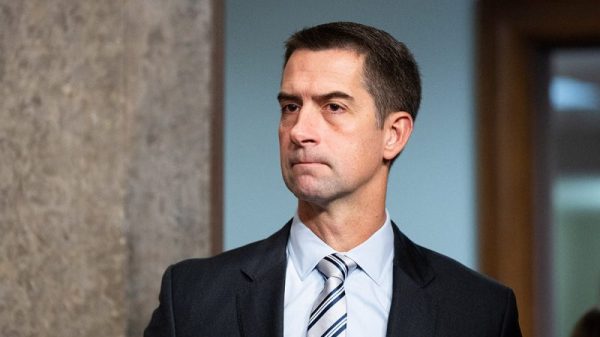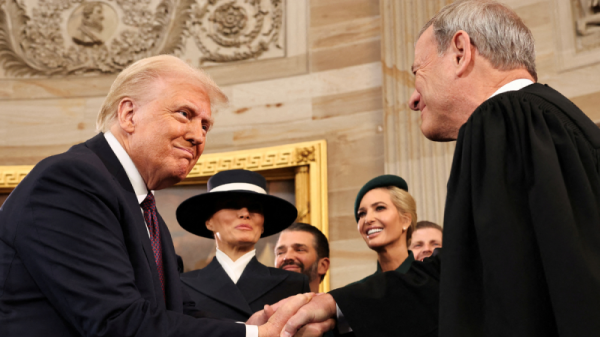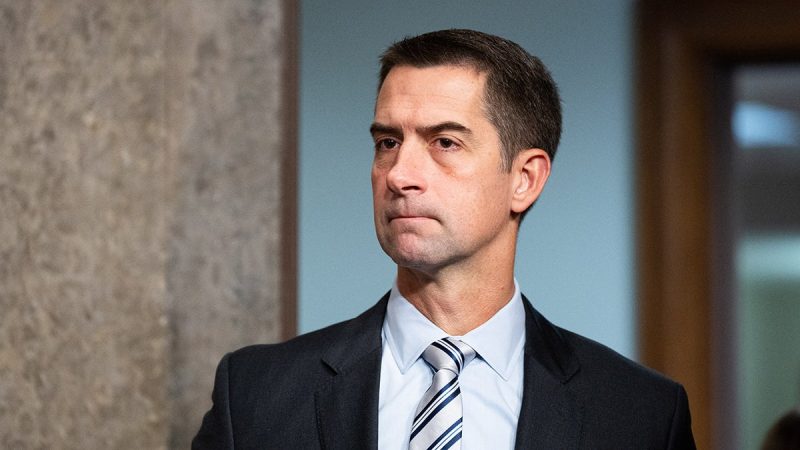A pair of hawkish, Trump-supporting Senate Republicans say that any ‘lasting’ Iran nuclear deal would need to be approved by Congress, ideally through a two-thirds majority treaty vote.
But scoring a two-thirds majority in the Senate for treaty ratification would require Iran to fulfill a series of steep demands. In addition to getting rid of all of its enriched uranium and centrifuges, GOP lawmakers say it would need to dismantle its ballistic missile program and cease all support for terrorist groups across the Middle East.
‘If they want the most durable and lasting kind of deal, then they want to bring it to the Senate and have it voted on as a treaty,’ Sen. Tom Cotton, R-Ark., said in response to a question from Fox News Digital.
‘That was one reason why President Obama’s deal was so weak,’ Cotton went on. ‘An agreement between the American president, whoever he or she may be, and a foreign leader, can be reversed by future presidents, which President Trump rightly did seven years ago today.’
In 2015, Cotton led an open letter signed by Senate Republicans to Iranian leaders warning that any nuclear agreement not approved by Congress could be undone by a future administration. The move was widely viewed as a direct effort to undermine President Barack Obama’s ongoing negotiations.
Sen. Lindsey Graham, R-S.C., echoed the call for congressional oversight, saying that ‘at a minimum’ any deal must go through the Iran Nuclear Agreement Review Act (INARA), which passed Congress in 2015 with resounding bipartisan support and guarantees lawmakers a chance to review any accord reached with Tehran.
Graham said he had told Secretary of State Marco Rubio there was ‘no way’ to get 67 votes to ratify a treaty agreement without Iran totally dismantling its nuclear and missile programs and support for terrorism.
The senators also drew a parallel with the so-called 123 agreements – the legal frameworks that govern U.S. civil nuclear cooperation with foreign nations. These agreements require strict safeguards to prevent the development of nuclear weapons.
‘It’s also customary in some cases for the Congress, not just the Senate, to pass ordinary legislation that supports the so-called 123 agreements,’ Cotton noted, suggesting that any comprehensive deal with Iran should be treated with similar legislative rigor.
Cotton and Graham spoke to reporters after introducing a resolution outlining ‘acceptable’ terms of an Iran deal, including total cessation of uranium enrichment.
According to the International Atomic Energy Agency (IAEA), Iran has amassed enough highly enriched uranium to potentially build several nuclear weapons if it chose to do so – though U.S. intelligence assessments maintain that Tehran has not yet made a decision to weaponize.
Both U.S. and Israeli officials have ramped up their threats against the regime. Trump has made clear that if talks go south, the U.S. will engage in direct military action to thwart Iran’s nuclear program.
Graham suggested the regime only has ‘weeks’ to acquiesce to a deal.
‘We’re not talking about long, protracted negotiations,’ the South Carolina Republican said. ‘We’re talking weeks, not months, not years. The potential of Iranian breakout looms large here. Israel’s desire to bring closure to this issue looms large here.’
























